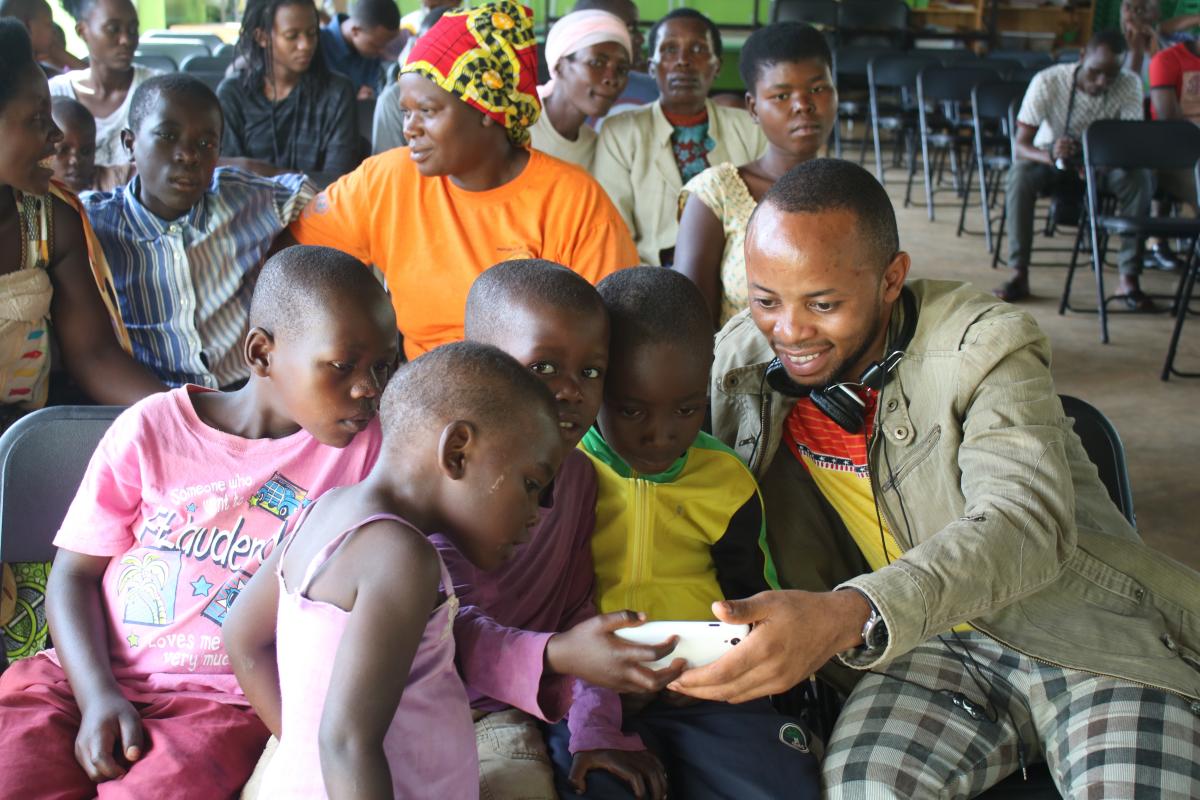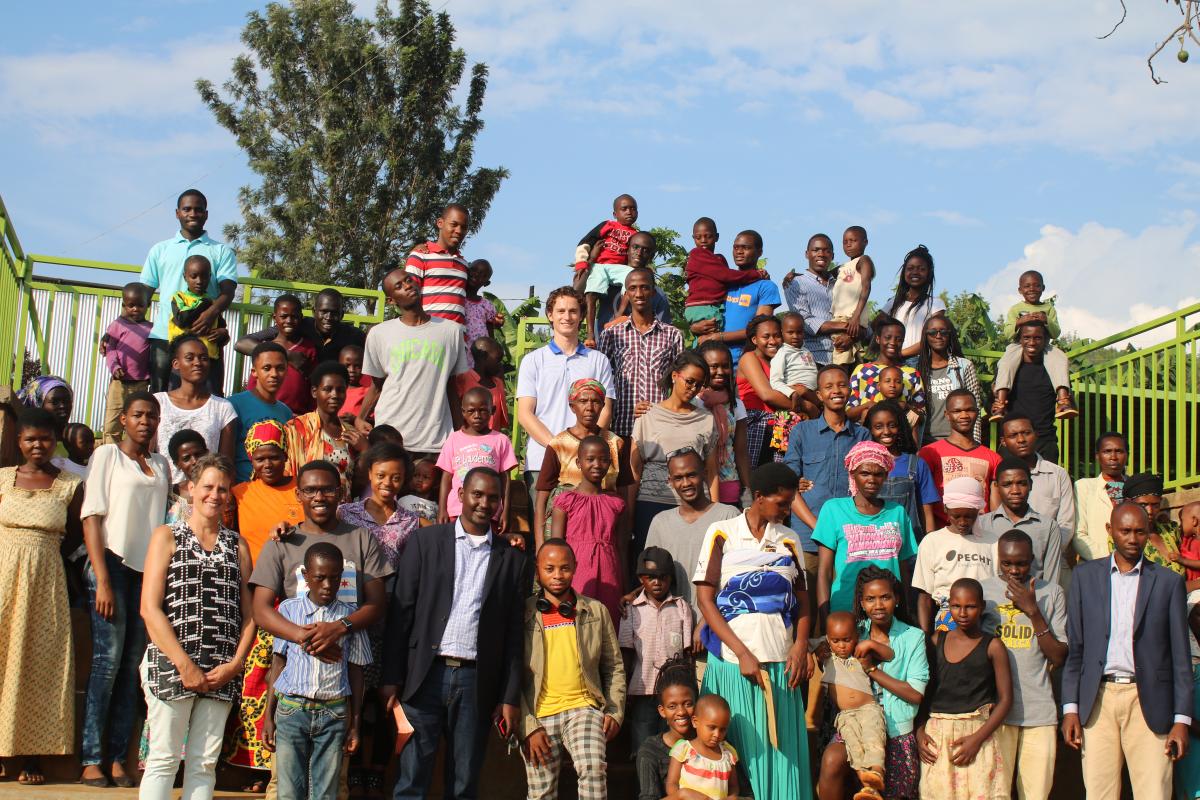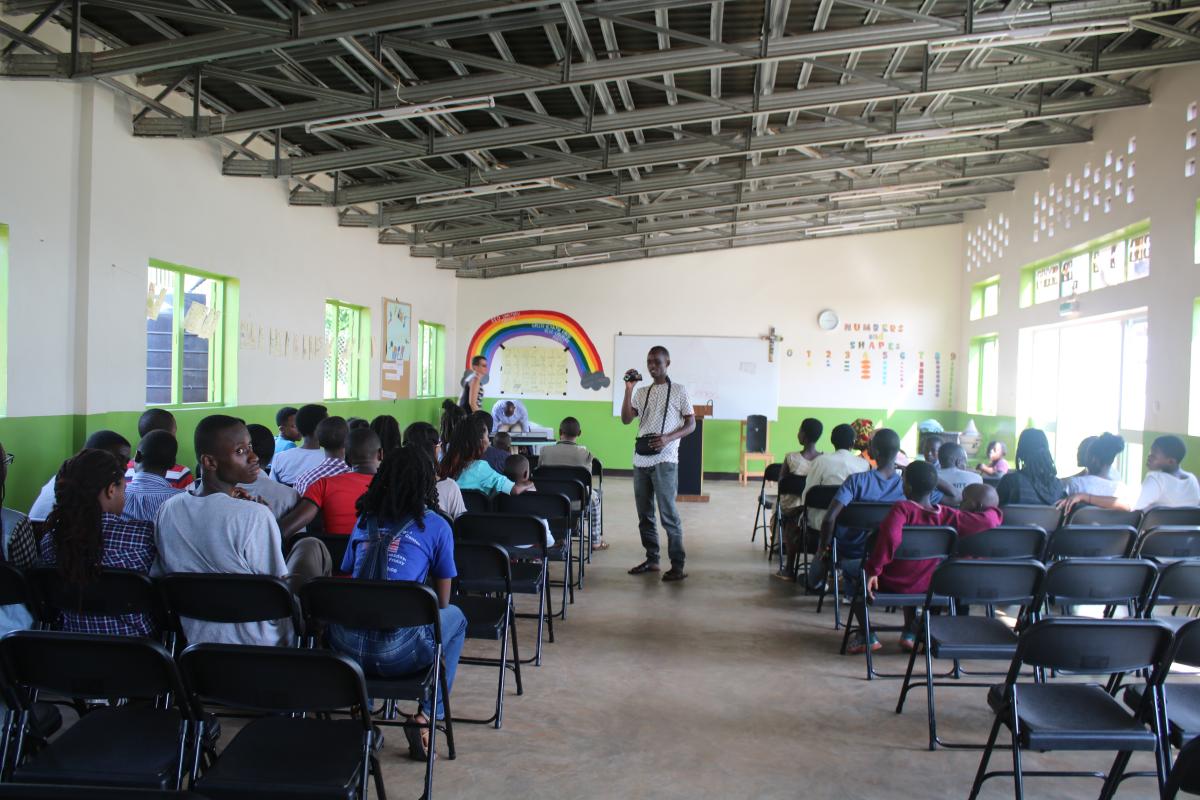
This December, B2R gap-year Scholars raised money to provide medical insurance for 40 people unable to afford the yearly payment.
The idea for the project came to Thierry Uwase, current gap-year Scholar and leader of the project, in October after reading several articles by author, anthropologist and physician, Paul Farmer. In the articles, Farmer encourages young people to tackle the greatest challenges of our time by taking seemingly simple ideas and turning them into great acts of service.
Around this time, Thierry was further challenged by a classmate’s devotion, which urged fellow B2R students to recognize the opportunity they have to impact the people in their community right now.
“From that point, I started to think, ‘What would I do? How can that be possible for me?’” Thierry said.
In Rwanda, an annual payment of 3,000 franc ($3.64) provides an individual with health insurance for an entire year. Unfortunately, for those unable to afford the insurance—many being families with small children and pregnant women—there are not many options available when they become sick or in need of medical care.
“I remembered that there are people who cannot afford to have 3,000 extra to pay for themselves and their family. It is a very huge amount of money for those people who are normal cultivators,” Thierry said. “I immediately grabbed some of my friends and said, ‘You know, guys, we can do something. Here is my idea!’ They were extremely happy to hear about it and said, ‘Yes, we can do this!’”

With 40 Scholars currently in the gap-year program, the students worked with the goal of raising money for 40 people to receive insurance.
“Raising the money was the toughest process,” Thierry said. “In my mind I did not want to force people to pay, but people were just willing to pay. I gave [the Scholars] two months [to raise money]…some people could give me 5,000 and others could give 1,000. Our main goal was just for 40 people to be covered by 40 Scholars.”
Knowing that the majority of those in need lived outside Kigali’s city limits, Thierry travelled outside the city to speak with local leaders who knew the area and people well. They helped gather specific individuals and families together to begin the process of organizing paperwork and documents.
“Here in Rwanda the [insurance] process is very cumbersome and complicated. I had to make sure that everyone was among the beneficiaries and that everyone had a photo and an insurance card,” Thierry said.
In order to get the insurance processed before the holidays, Thierry and several other Scholars volunteered to help the local sector leaders process the paper work and documents, which could have taken up to two weeks to complete.
“It was very hard, but with the cooperation of my classmates it was completed,” Thierry said. “I had the idea, but I was not the one to commit it. My classmates are the ones that contributed a lot through their time and prayers.”
The money raised will provide 40 people with insurance for seven months, with the next insurance cycle beginning in July.
Thierry has a bigger dream, however. With roughly 100 B2R students returning to Rwanda in the summer, Thierry hopes to organize a bigger event that will provide more people with insurance for a longer period of time.

“I feel that it is my duty to put a smile on someone’s face,” Thierry said. “Those people did not come to us and ask us to pay for their insurance, but I think, still now, they think about that. We told them that we don’t need them to thank us; we just ask that they serve someone else and pay it forward. The whole idea of servant leadership is recognizing that you are who you are because many people have poured their lives into yours. So you have to give back.”
B2R continues to challenge students to see the needs of those around them and actively work to find a solution with whatever means they have.
“The program helps you to understand—like an epiphany—your role in the community. And that does not require you to have a big sum of money in your account or even a huge plot of land,” Thierry said. “It’s just a matter of recognizing other people and knowing your role as a servant.”
